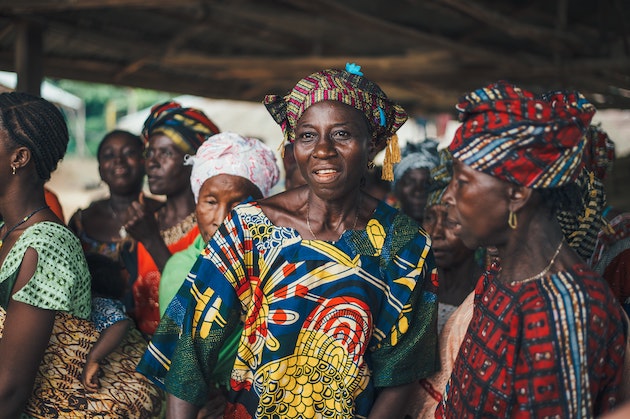UN relief chief stresses need to stay and deliver for all Afghans — Global Issues
UN Humanitarian Coordinator Martin Griffiths, who briefed ambassadors, reported on the ongoing hardships and uncertainty facing Afghans, nearly half of whom – 24 million people – require aid relief to survive.
“Afghanistan’s crisis is a humanitarian crisis, but it’s not only that. It’s an economic crisis. It’s a climate crisis. It’s a hunger crisis. It’s a financial crisis. But it’s not a hopeless crisis,” he said.
A critical situation
Although conflict, poverty, climate shocks and food insecurity have long been a “sad reality” for Afghanistan, Mr. Griffiths outlined why the current situation is so critical.
Firstly, large-scale development assistance has been halted for a year in a country that was already facing severe levels of food insecurity and malnutrition, which have only deteriorated.
Humanitarians are also confronting an “exceptionally challenging” operating environment, he added, as engaging with the de facto authorities is “labour intensive”.
Liquidity crisis, rights reversal
Furthermore, there is no confidence in the domestic banking sector which has sparked a liquidity crisis, that has affected aid delivery. A Humanitarian Exchange Facility intended to partially alleviate the liquidity crisis, is still being negotiated with Taliban leaders.
Meanwhile women and girls “have been pushed to the sidelines”, Mr. Griffiths added. Rights gains have been reversed, and adolescent girls have not attended school in a year.
“In the 21st century, we should not need to explain why girls’ education and women’s empowerment are important to them, to their communities, to their countries, and indeed to all of us,” he said.
Funding shortfall
The UN relief chief stressed that preserving basic service delivery alongside humanitarian assistance “remains the only way to prevent a catastrophe even greater than what we have seen these many months.”
He reported that poverty is still deepening, the population continues to grow, and the de facto authorities have no budget to invest in their own future, making it clear that “some development support needs to be restarted”.
A $4.4 billion Humanitarian Response Plan for Afghanistan currently has a gap of $3.14 billion, he said.
With winter approaching, more than $600 million is urgently needed to support priority preparedness activities, such as upgrades and repairs to shelters, as well as provision of warm clothes and blankets.
Additionally, $154 million is needed to pre-position supplies, including food and livelihood assistance, before the winter weather cuts off access to some areas of the country.
Prosperity and safety
“The people of Afghanistan have shown incredible resilience over the decades and in this last year. Our task is to help them to prosper, to flourish and to be safe,” said Mr. Griffiths, who also called for action by the de facto authorities.
“Bureaucratic interferences and procedures slow down humanitarian assistance when it is needed most. Female humanitarian aid workers – both national and international – must be allowed to work unhindered and securely. And girls must be allowed to continue their education.”
‘Ambiguous’ engagement
Markus Potzel, the Secretary-General’s Acting Special Representative for Afghanistan, reported on the UN’s ongoing engagement with the de facto authorities, as well as efforts towards promoting inclusive governance, rights and freedoms.
He said the Taliban have been “ambiguous” as to the extent to which they want to engage, predicated on being in accordance with their interpretation of Sharia law.
Mr. Potzel underlined the vital need to move “beyond an exchange of hardened positions” towards a sustained dialogue between the Taliban, other Afghan stakeholders, the wider region and the international community.
“Such dialogue must place the interests of all Afghans at its centre,” he advised. “The future stability of Afghanistan rests on meeting the needs of the Afghan people, preserving their rights, and reflecting the country’s diversity in all governance structures.”
Check out our Latest News and Follow us at Facebook
Original Source







